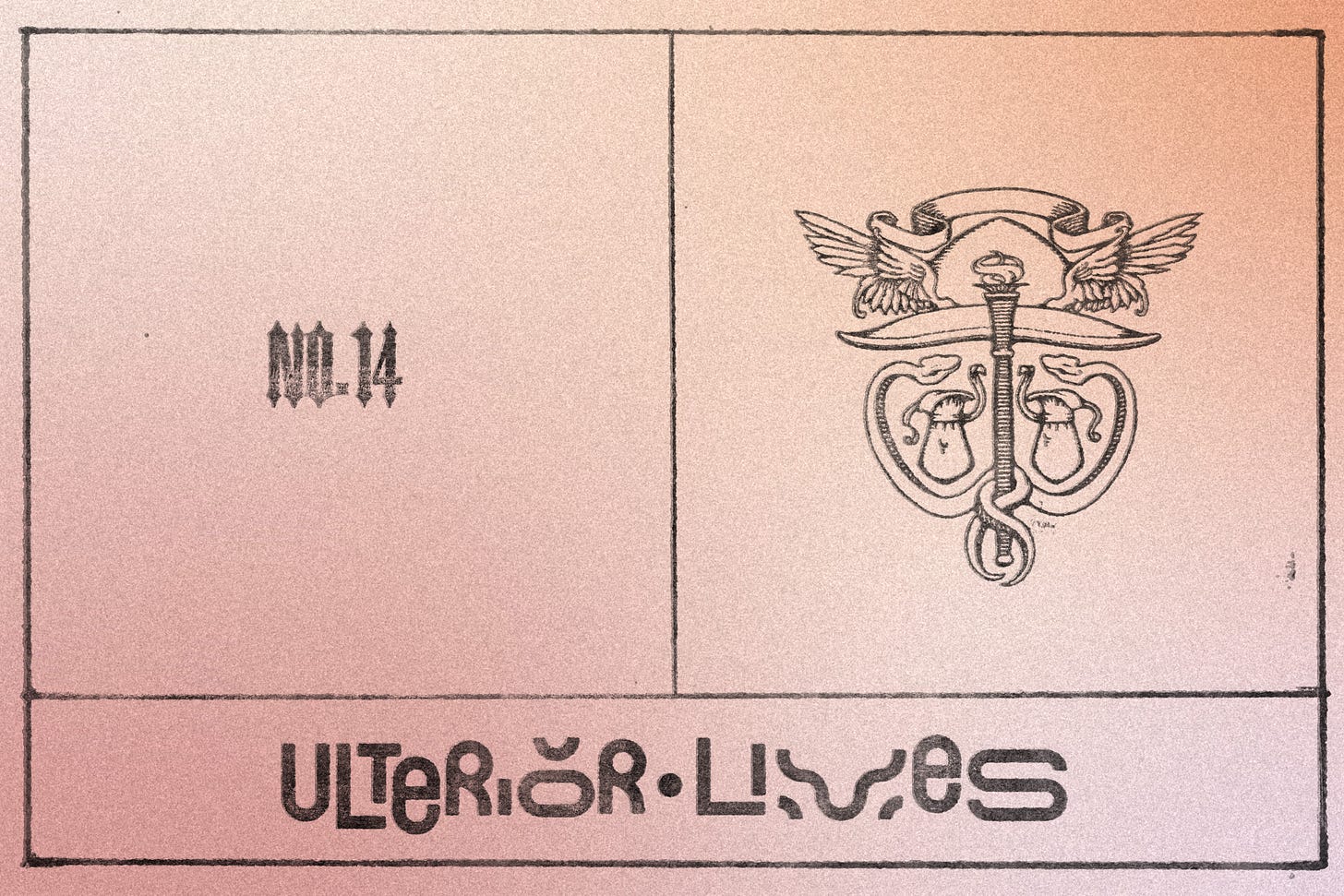Turning free competition into a joke
The undercurrent of hermits 'competing' to be the lowest and the least parodies the Roman world of power, prestige and privilege.
Part 14 of our Ulterior Lives series: A Slow Research Project into The Outsider Politics of Monasticism. Read the introduction here.
“Hyperichius said, ‘the tree of life is high, and humility climbs it.’”
Free competition is a central dogma of various economic theories. We are guaranteed the lowest possible prices for goods when businesses compete against one another for customers, each offering the more competitive price.
The idea comes under strain at one end when businesses make shoddy goods, or become exploitative in their production process, because competition obliges them to make everything as cheaply as possible. It comes under strain at the other end when one business manages to dominate, creates a monopoly and eradicates the competition. This is to say that the present writer is doubtful that competition, in the service of what ancient Christians called the passions, is something that leads to a good, sustainable and happy common life. What Thomas Hobbes called “the war of every man against every man” is not, I think, a redeemable vision, but a vision from which one might be redeemed.
Having said this, I cannot help noticing an irony winking its way throughout the tales of the desert hermits; a sort of running joke. There is so often the faint and undeclared suggestion of a competition among the monks. Perhaps we should call it anti-competition. A competition to see who could be the most austere; who would have the least; whose existence was the most horrifyingly bare; who could leave the lightest footprint on the world; who could empty themselves and give themselves away the most gratuitously.
There was a strict norm of non-judgment among the hermits. People didn’t name names when it came to a person having failed, or having done wrong, or looking foolish in this way or that way. But people would be named routinely in the book of dearth. They lifted up highest the names of those who sank the lowest.
“Helladius… lived twenty years in his cell, and did not once raise his eyes to look up at the roof.”
“They said of Arsenius that while he was in the emperor’s palace he was the best dressed person there and while he was leading the life of a monk, no one was clothed in worse rags.”
“Theodore of Pherme… kept these three rules before all others: poverty, abstinence and avoiding the company of other people.
This convention makes a comedic parody of the Hobbesian “war of every man against every man.” Hobbes would only be able to interpret the situation as some mad war of each against themselves. His low view of human nature informed his argument that man cannot live except under the sword of the tyrant, who enforces some violent peace. The hermits were the opposite of everything Hobbes held to be true.
And yet, a parody of free competition, is still a competition of sorts: not the absence of it. I see here two things: the competition and the joke.
Competition is a driver: it is a form of life in which everyone accepts the same goal, the same ideal, the same set of rules. Under the conditions of competition, things move in a certain direction. People enact the same sort of dance. They perceive themselves to be playing the same game, whatever that may be. It carries the blessing of common purpose along with the thorny stem of an adversarial social energy.
For the hermits, this ironic take on an adversarial world provided a sense of common purpose. The goal, or the common ideal in the contest, was to sink as low as possible. The fact that this is a joke is a matter of the greatest seriousness. Everything collapses without the joke. It's a joke because, in a Roman world of power, status, patronage and privilege they competed to see who could live on the least uncooked lentils. It was a joke because if you won, you lost, and if you lost, you won. It was a joke because your adversary’s life might be made materially easier if you were the winner.
Most of all, it had to be a joke, because they had chosen to be “conformed no longer to the pattern of the age.” If some part of that pattern — the image of competition — was to be reproduced in the life they formed, it would be adopted with irony, pointed as it was in the opposite direction. One cannot exit the world without a touch of the jester. A sense of humour prevents the new from shattering against the past.
A parable to remind us that resistance matters, even in mundane things
Paul McGowan asks, what if the Gospels' 'Parable of the Talents' is not a lesson about 'gifts' after all, but a story about collaboration, integrity and resistance?







